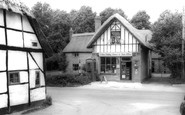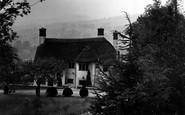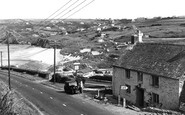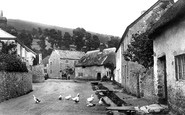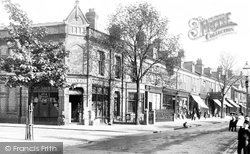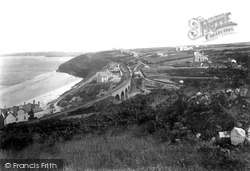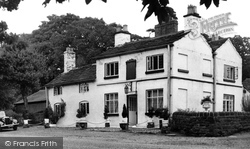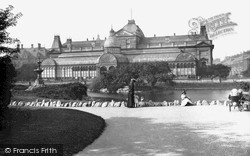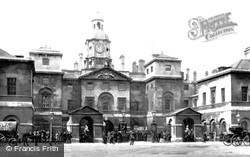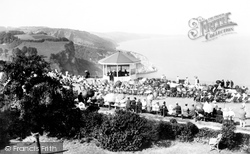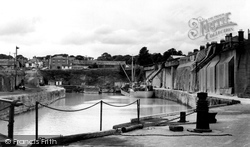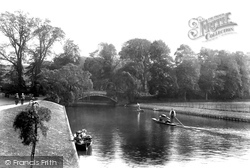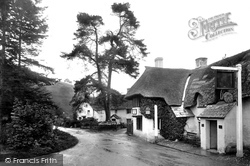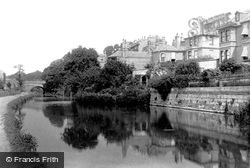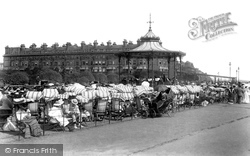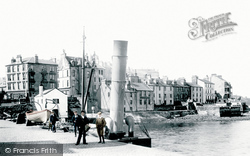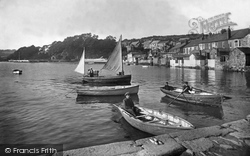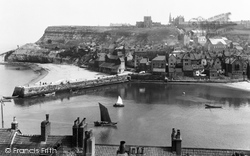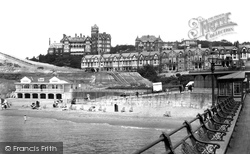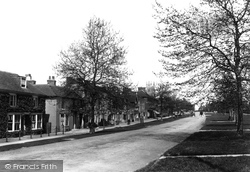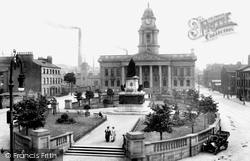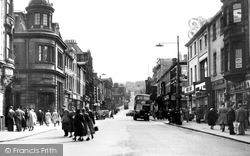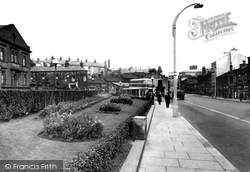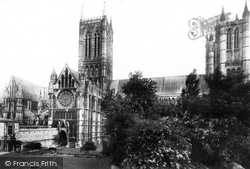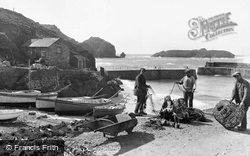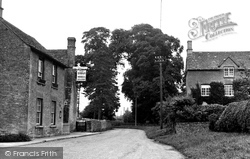Places
3 places found.
Those places high-lighted have photos. All locations may have maps, books and memories.
Photos
63 photos found. Showing results 1,421 to 63.
Maps
12 maps found.
Books
1 books found. Showing results 1,705 to 1.
Memories
7,565 memories found. Showing results 711 to 720.
My Grandparents
My grandparents lived at Fern Cottage. They moved there before the war and had two children, Dick and Jean. Dick was based at Wick and died in the war. Jean, my mum, married and had me and my sister. I have wonderful ...Read more
A memory of Cropwell Bishop in 1960 by
63 81
I lived on Carlton Road, across the A22 from Danemore Lane, close to Anglefield Corner from 1963 to 1981 and have very fond memories of a fun childhood, lots of friends, and a lot of fields, streams and lakes to play in. I went to Oxtead ...Read more
A memory of Blindley Heath in 1963
6th Northwood Scouts Go Hostelling
I remember staying at the youth hostel in Greens Norton with the patrol leaders of the 6th Northwood Scout Group. I was an ASL (Assistant Scout Leader) with the troop for several years and as I had always ...Read more
A memory of Greens Norton in 1980 by
Nether Wallop 1930 1940
My uncle, Sir Howard Button. bought 2 cottages, Mallows and Yew Tree Cottage and a house, Straw Hall, in 1915. I have an album of photographs of the cottages from 1915 - 1926. My uncle let us (my parents, my brother ...Read more
A memory of Nether Wallop in 1930 by
Totney House
The is a picture of Totney House on lower Kingsdown Road. I was captivated by this house as a small child walking past it, with its white-washed walls and thatched roof. I eventually got to go inside when a school ...Read more
A memory of Kingsdown by
Childhood Memories South Park 1960s Approx
I like to remember my childhood in Darlington where I grew up until I moved to Whitley Bay. We used to spend lots of time in the South Park, on the swings, around the rose garden and of course the roller ...Read more
A memory of Darlington in 1960 by
Early Memories Of An Ascotonian
I was born at 40 Bracken Bank (off Fernbank Road) in June 1953. I attended Ascot Heath Primary School on the original site in Fernbank Road, from 1958 until 1964. I remember Richard Dale from these days, although I am ...Read more
A memory of Ascot in 1960 by
Rivierra Lodge
When Mr & Mrs Carrington had White Lodge I used to be employed by them every summer helping out in the kitchen and looking after the children. When they sold White Lodge and bought The Riviera lodge I once again worked for ...Read more
A memory of Mawgan Porth in 1966 by
The Keelings 1940 Evacuees
My sister, Joy, elder brother, Richard and myself, John Keeling, were evacuated to Llanharan in June 1940. After a short time Richard and myself were placed with a lovely old lady at 12 Seymour Avenue, Mrs Surridge. I do ...Read more
A memory of Llanharan in 1940 by
The Ship Inn At Axmouth.
The Ship Inn can be seen to the left of the photograph; just beyond the wall. My great-great-grandparents, John and Mary Real (born in Axmouth in 1821 and 1824 respectively) were licensees of The Ship Inn, Axmouth, at the time ...Read more
A memory of Axmouth in 1960 by
Captions
2,471 captions found. Showing results 1,705 to 1,728.
The residential nature of the place led to the establishment of quality retail outlets.
This view shows Carbis Bay when it was still largely undeveloped, with just a scattering of houses above the cliffs overlooking the sandy beach.
By the time this photograph was taken, the Wizard had started its transformation from a cheerful tearoom for walkers and cyclists into a select restaurant.
This is Mowbray Park, created in the 1850s out of Bildon Hill and the old quarries on its north face.
A crowd, mainly male, has gathered for the Changing of the Guard in five minutes' time at 11.00am.
This is Mowbray Park, created in the 1850s out of Bildon Hill and the old quarries on its north face.
A popular clifftop band concert at Babbacombe. Once a small village, Babbacombe has long been subsumed into Torquay and struggles to keep its own identity.
The new outside market stalls which stretch along the Peel Street side and the back of the Market Hall were built in 2003 to replace the concrete umbrella market, which was demolished in 2002.
Looking up the harbour, we can see a small Dutch coaster loading china clay at two chutes. Such motor ships were common around the Cornish coast from between the wars until the 1970s.
The Backs, which are the lawns, meadows and gardens behind the colleges which back on to the River Cam, are a favourite place for recreation.
Originally a 13th-century farm, the building became a halt for packhorse trains carrying wool across the hills.
The Kennet and Avon Canal, authorised by Act of Parliament in 1794 and opened in 1810, linked Bristol with London, cutting a canal from the Avon in Bath to the Kennet, which was then canalised to the Thames
The Leas bandstand was built in 1885. A large crowd has gathered to hear the band, including the lady in the invalid carriage in the centre of the photograph.
This view shows the backs of buildings along Kempock Street. Kempock Place is just in view on the extreme left of the picture.
The small boy in the sternsheets of the boat being rowed by the white-bearded man in the peaked cap seems singularly unimpressed by photography, unlike the youth in the stern of the rowboat
On the extreme left we can just see the so-called Spa ladder, leading to the East Pier. On the right side we can see the back of the Cholmley School, which was endowed by Lady Cholmley in 1869.
With the turret of the Chine Hotel, which served as a landmark for Channel shipping, prominent in the back- ground, the elegant row of Victorian houses along Undercliffe Road bears tribute to the enduring
This was the year that Coca Cola arrived in Kent and an outbreak of typhoid fever terrified local families. At this time the Headcorn to Tenterden railway line was opened.
At the centre of Dalton Square stands a bronze statue of Queen Victoria guarded by four lions, given to the city by Lord Ashton. He also donated the new Town Hall, which stands at the back.
The ornamental floral beds that here border St James' Street have now been removed, but buses still use the area as their terminus.
The ornamental floral beds that here border St James' Street have now been removed, but buses still use the area as their terminus.
This view from an upper window across Eastgate shows the north side of the minster with the back wall of the cloisters on the left.
Small inshore fishing boats are drawn up at the back of the harbour, where two jetties were built in the 1890s to provide shelter and encourage this local industry.
Very much a village pub, the Swan has a beer garden at the back to cater for the local populace, who number around 500, and visitors who come this way to walk round this quiet spot.
Places (3)
Photos (63)
Memories (7565)
Books (1)
Maps (12)



